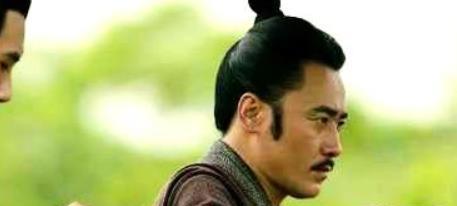Dong Zhuo was a famous warlord in the early three kingdoms period at the end of the Han Dynasty and a historical figure who had an important impact on the historical process of the Three Kingdoms. Dong Zhuo's ancestral home was Lintao in Longxi, and his father Dong Junya once served as a lieutenant of Lunshi County, Yingchuan County, Yuzhou, in the Han Dynasty, and Dong Zhuo was born during this period. After Dong Junya retired in old age, he returned to his hometown Lintao with his young Dong Zhuo and became a farmer who made a living from arable land.

Lintao is located in the northwest, bordering nomadic tribes such as the Qiang and Xianbei. When Dong Zhuo was young, he liked to wander around, befriended the jianghu Haojie, had a good relationship with the leaders of the nomadic tribes, and was influenced by them, and his temperament became rough and strong, bold and bold. During the reign of Emperor Huan of Han, Dong Zhuo stepped forward to join the army and became a soldier in the Eastern Han army. He fought bravely and repeatedly made meritorious achievements, successively serving as Guangwu Ling of Yanmen County, Hezhou, northern Lieutenant of Shu County, Lieutenant of The Western Regions, Assassin History of Hezhou, and Taishou of Hedong County, and for a long time he guarded the northwest, and gradually became a warlord with heavy troops.
In the sixth year of Zhongping (189), a fierce power struggle broke out in the Eastern Han Court, and the general He Jin and the eunuch group with dictatorial power and power had a fierce conflict, and the two sides were evenly matched. In order to win, He Jin falsely sent a holy message to Dong Zhuo to lead the army to Luoyang, hoping to use Dong Zhuo's strength to eliminate the eunuchs. Dong Zhuo was already ambitious, wanting to dominate the world by relying on the strong military strength in his hands, and immediately led more than 100,000 troops into Luoyang in the name of the Qing Junfang, and the "Dong Zhuo Rebellion" began.
Dong Zhuo used his unrivalled strength to usurp the imperial power of the Eastern Han Dynasty, deposing the emperor at will, killing the ministers, and allowing the soldiers to burn and plunder, almost destroying the splendid and prosperous luoyang city into ruins. Both the government and the public hated and feared Dong Zhuo's barbaric crimes, but no one had the strength to compete with Dong Zhuoxiang.
At the moment of crisis, the Eastern Han Dynasty minister Situ Wang Yun stood up. Wang Yun was loyal to the Han Dynasty and was determined to eliminate Dong Zhuo and eliminate harm for the people. On the surface, he "showed affection and submission to Dong Zhuo, and every time he was attached", he gained Dong Zhuo's trust, but secretly he accumulated strength, conspired with "Lieutenant Huang Huan of the Division, Shangshu Zheng Gongye, and other conspirators to conspire against him", and took the great risk of "subtly marrying Lü Bu and making it an internal response", winning Lü Bu over, and finally succeeding in killing Dong Zhuo. The Romance of the Three Kingdoms depicts this historical fact in a colorful way, depicting Wang Yun's use of the "serial scheme" to kill Dong Zhuo, and Wang Yun single-handedly eradicated Dong Zhuo and quelled Dong Zhuo's rebellion, and his reputation is known all over the world.
However, Wang Yun, who eradicated Dong Zhuo, eventually became a sinner who destroyed the Han Dynasty. After Dong Zhuo's death, Wang Yun made a series of major mistakes, which eventually buried the great situation of the revival of the Han Dynasty and triggered the more serious Rebellion of Li Dai and Guo. During the Three Kingdoms period at the end of the Han Dynasty, there was a famous scholar Cai Yong. Cai Yong is not only erudite and talented, but also has a good character, which is the hope of the people in the sea. During Dong Zhuo's rebellion, he once forced Cai Yong to enter the dynasty as an official, and Cai Yong repeatedly advised Dong Zhuo's mistakes. Even the fierce Dong Zhuo, intimidated by Cai Yong's prestige, did not dare to move a single hair of him.
Once Wang Yun had a casual conversation with Cai Yong, and Cai Yong believed that Wang Yun had been too hasty in killing Dong Zhuo, and that there were many improper handling of the aftermath. However, Wang Yun believed that Cai Yong was wrongfully complaining about Dong Zhuoming, and imprisoned him as Dong Zhuo's accomplice and tortured him to death. Cai Yong's death caused a series of vicious chain reactions, ruining the excellent situation that the Han Dynasty had just stabilized.
Both the government and the public expressed deep sympathy for Cai Yong's death, and were greatly disappointed by the Eastern Han court and Wang Yun. What's worse is that many of Dong Zhuo's old departments are dead and sad, and they are quite uneasy. They believed that Cai Yong had been Dong Zhuo's old man, and Wang Yun's murder of Cai Yong indicated that he was about to begin a major purge of Dong Zhuo's old department.
Moreover, after the end of Dong Zhuo's rebellion, Wang Yun also delayed the pardon order for Dong Zhuo's old ministry. A series of mistakes eventually led to the rebellion of Li Daiguo, and Dong Zhuo's old troops swarmed to re-revolt, bringing a catastrophe to the Han Dynasty, causing the Han Dynasty to be seriously injured, and thus losing the last chance to make a comeback. Wang Yun was directly responsible for this and was regarded as a historical sinner who destroyed the Han Dynasty.
Reference: Book of the Later Han Dynasty